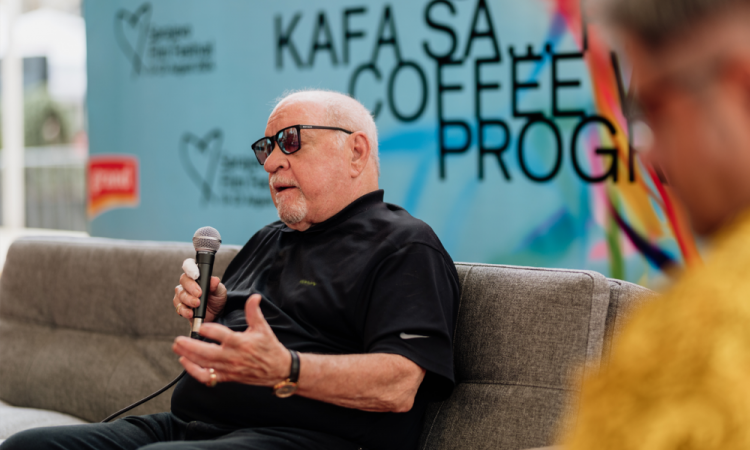News
Grand Coffee with Paul Schrader: I filmed OH, CANADA after I started thinking about death
On Monday, August 19, in the Grand Coffee With…Programme of the 30th Sarajevo Film Festival, Paul Schrader, an American director and screenwriter, was a guest at the Festival square.
His film OH, CANADA was screened as a special gala screening at this year's Sarajevo Film Festival. Other than his film OH, CANADA, Schrader spoke about the film industry and its future:
"During the Covid-19 pandemic, I was in the hospital three times in a year. Given my age, I started to think about death. Although I had already written a script about women's sexual responsibility, the theme of death had become more significant to me. My friend Russell Banks wrote a book about cancer, from which he later died, so I wanted to make a film that adapted that book. Initially, the title of his book was supposed to be "Oh, Canada," but the writer Richard Ford had previously published a book called "Canada." Banks told me that if I ever made a film based on his book, I had to name it the way he originally intended. That’s how my film got its name."
The actual form of the film Schrader characterised as similar to his film MISHIMA: A LIFE IN FOUR CHAPTERS.
"The form of the film OH, CANADA is like an object that shatters into pieces when it falls. Many stories and memories intertwine, and the dominant color is the red from Bergman's film "Cries and Whispers. "
He also mentioned that, due to problematic political and legal situations, his film MISHIMA: A LIFE IN FOUR CHAPTERS has never been screened in Japan: “There is a chance it might be shown at the Tokyo Film Festival this year.“
“We expect the premiere in Japan in October this year, after more than 30 years.”
In terms of film references, OH, CANADA also alludes to the famous film “Citizen Kane” by Orson Welles: “The penultimate shot of my film corresponds to that famous scene at the beginning of “Citizen Kane” where Charles Kane says ‘rosebud,’ while my character says “Canada.”
Schrader described the screenplay writing process as one he refers to as “speculation.”
“I work on the principle of speculation. That means no one is paying me for what I write at that moment. Consequently, no one is financially blackmailing me to write. That’s how TAXI DRIVER and OH, CANADA came about. For the last five or six films, for this very reason, I have financed them myself, with my own money. It gives me freedom, but not profit. Studios don’t like me. Film studios today are very different from those that existed before. In the past, they were run by people who loved films. That’s no longer the case.”
He also spoke about the state of contemporary cinema:
“Nowadays, almost everyone can afford to make a film. The filming process itself has changed. More time is spent in post-production than on the actual filming. This is due to digitalization. I’m a member of the jury at this Festival, and all the films I see look the same. The approach to filmmaking has completely changed. Films today are much slower, the camera is more static, and there’s almost no zooming. I think directors don’t realize that even such use of the camera is a form of manipulation. I wish they were bolder.”
In recognition of his outstanding contribution to the art of film, Paul Schrader was awarded the Honorary Heart of Sarajevo on August 18, which he was to receive at the 28th Sarajevo Film Festival when he was unable to attend due to health reasons.







